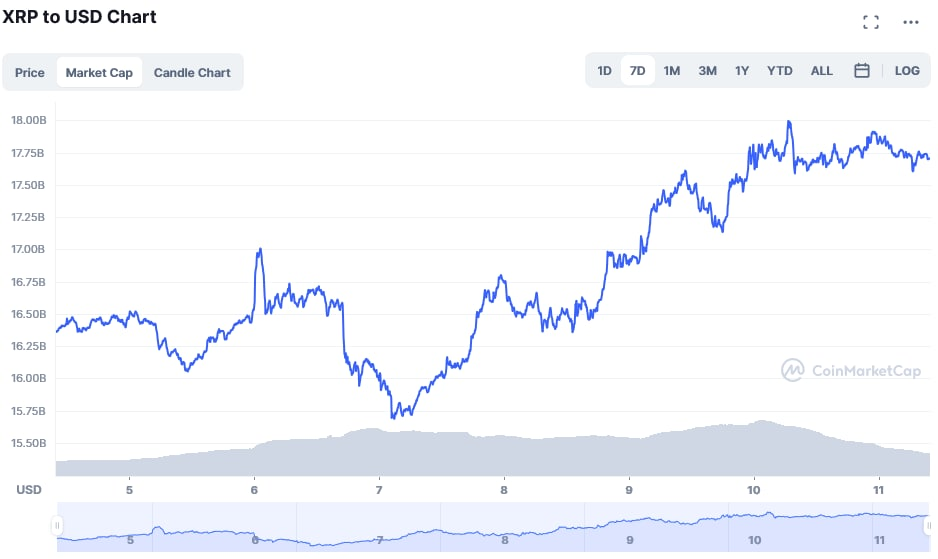Rethinking Middle Management: Their Contribution To Company Growth

Table of Contents
The Bridge Between Leadership and Employees
Middle managers serve as the vital link connecting upper management's strategic vision with the day-to-day operations of frontline employees. Their effectiveness directly impacts employee engagement, productivity, and overall organizational performance.
Effective Communication and Information Flow
Middle managers act as vital communicators, translating strategic goals from upper management into actionable plans for frontline employees. Clear, consistent communication is crucial for minimizing information distortion and ensuring everyone is working towards the same objectives.
- Clear communication channels: Establish transparent and easily accessible channels for information dissemination, such as regular email updates, team meetings, and intranet platforms.
- Regular team meetings: Conduct frequent meetings to discuss progress, address concerns, and ensure everyone is aligned on goals.
- Transparent feedback mechanisms: Implement systems for regular feedback from both employees and upper management, fostering open communication and continuous improvement.
- Active listening: Encourage open dialogue and actively listen to employee concerns, ideas, and suggestions. This fosters a sense of value and belonging.
Effective communication minimizes misunderstandings, improves team cohesion, and ensures everyone understands their role in achieving company growth objectives. Without this crucial link, strategic initiatives risk becoming diluted or misunderstood.
Fostering Employee Engagement and Motivation
Highly engaged middle managers are crucial for boosting team morale, leading to increased productivity, reduced turnover, and a stronger company culture. Their ability to motivate and inspire their teams directly impacts the bottom line.
- Mentorship: Middle managers should act as mentors, guiding and supporting their team members’ professional development.
- Opportunities for professional development: Providing access to training programs, conferences, and workshops allows employees to enhance their skills and advance their careers.
- Recognizing and rewarding accomplishments: Acknowledging individual and team achievements fosters a positive work environment and encourages continued high performance.
- Creating a positive work environment: Building a supportive and inclusive team culture increases employee satisfaction and engagement.
A positive and supportive environment cultivated by engaged middle managers fosters a sense of belonging, increases employee retention, and ultimately contributes significantly to company growth.
Driving Strategic Execution and Achieving Business Goals
Middle managers are not just communicators; they are the driving force behind strategic execution, translating high-level plans into tangible results. Their ability to manage resources effectively and monitor progress is crucial for achieving business goals.
Translating Strategy into Actionable Plans
Middle managers play a critical role in breaking down large, complex strategic objectives into smaller, manageable tasks. Effective project management skills are essential for successful implementation.
- Project management skills: Employing effective project management methodologies ensures tasks are completed on time and within budget.
- Resource allocation: Efficiently allocating resources—personnel, budget, and equipment—is vital for maximizing productivity.
- Performance monitoring: Regularly tracking progress against established goals allows for timely adjustments and course correction.
- Regular progress reports: Providing frequent updates to upper management keeps everyone informed and allows for proactive problem-solving.
By effectively breaking down large projects, middle managers ensure that strategic initiatives are implemented effectively, contributing directly to company growth.
Identifying and Addressing Performance Gaps
Middle managers are often the first to identify operational inefficiencies and potential areas for improvement. Their frontline perspective offers valuable insights for enhancing performance and streamlining processes.
- Performance reviews: Conducting regular performance reviews allows for identification of areas where employees need additional support or training.
- Identifying training needs: Recognizing skill gaps and providing appropriate training enhances employee capabilities and overall team performance.
- Problem-solving: Proactive problem-solving and addressing challenges promptly minimizes disruptions and maximizes efficiency.
- Implementing process improvements: Identifying and implementing improvements based on data and feedback contributes to enhanced productivity and efficiency.
Data-driven analysis and proactive problem-solving by middle managers contributes to a more efficient and productive organization, fostering sustainable company growth.
Investing in Middle Management for Long-Term Growth
Investing in middle management is not an expense; it’s a strategic investment in the long-term success of the organization. Developing their leadership skills and fostering talent ensures organizational stability and preparedness for future challenges.
Leadership Development and Training Programs
Investing in leadership training and development programs equips middle managers with the necessary skills to effectively lead, motivate, and manage their teams.
- Leadership training courses: Providing access to structured leadership training programs develops crucial skills such as communication, decision-making, and conflict resolution.
- Mentorship programs: Pairing experienced leaders with aspiring middle managers provides valuable guidance and support.
- Coaching opportunities: One-on-one coaching can address specific skill gaps and provide tailored support for individual growth.
- Conferences and workshops: Attending industry conferences and workshops keeps middle managers up-to-date on best practices and emerging trends.
Investing in leadership development is a strategic investment with a significant return in terms of improved employee performance, increased retention, and sustained company growth.
Talent Management and Succession Planning
Effective talent management within middle management ensures a pipeline of skilled leaders, supporting organizational stability and growth.
- Identifying high-potential employees: Proactively identifying and nurturing high-potential employees ensures a strong succession plan.
- Developing talent pipelines: Creating a clear pathway for career advancement motivates employees and ensures a consistent flow of skilled leaders.
- Succession planning: Implementing a robust succession plan minimizes disruption and ensures organizational stability during leadership transitions.
- Internal promotions: Promoting from within fosters employee loyalty and encourages continuous development.
Strategic talent management within middle management creates a strong foundation for long-term growth and organizational sustainability.
Conclusion
Rethinking middle management reveals their indispensable role in driving company growth. By empowering, developing, and supporting them, organizations unlock significant potential for improved employee engagement, strategic execution, and long-term sustainability. They are not simply a layer of bureaucracy, but a crucial bridge between leadership and employees, directly impacting the organization’s success.
Stop viewing middle management as a bottleneck and start recognizing their potential. Invest in your middle managers through effective communication, leadership development programs, and talent management strategies to unlock the full potential of your organization and achieve sustainable company growth. Rethink your approach to middle management today.

Featured Posts
-
 Black Rock Etf Billionaire Investments And The 2025 Market Forecast
May 08, 2025
Black Rock Etf Billionaire Investments And The 2025 Market Forecast
May 08, 2025 -
 Dwp Bank Account Alert 12 Benefits At Risk Important Information
May 08, 2025
Dwp Bank Account Alert 12 Benefits At Risk Important Information
May 08, 2025 -
 Watch Andor Season 1 Episodes On Hulu And You Tube Before Season Two
May 08, 2025
Watch Andor Season 1 Episodes On Hulu And You Tube Before Season Two
May 08, 2025 -
 Ethereum Cross X Indicators Flash Buy Signal Institutions Accumulate 4 000 Target
May 08, 2025
Ethereum Cross X Indicators Flash Buy Signal Institutions Accumulate 4 000 Target
May 08, 2025 -
 Should You Invest In Xrp After Its 400 Price Increase
May 08, 2025
Should You Invest In Xrp After Its 400 Price Increase
May 08, 2025
